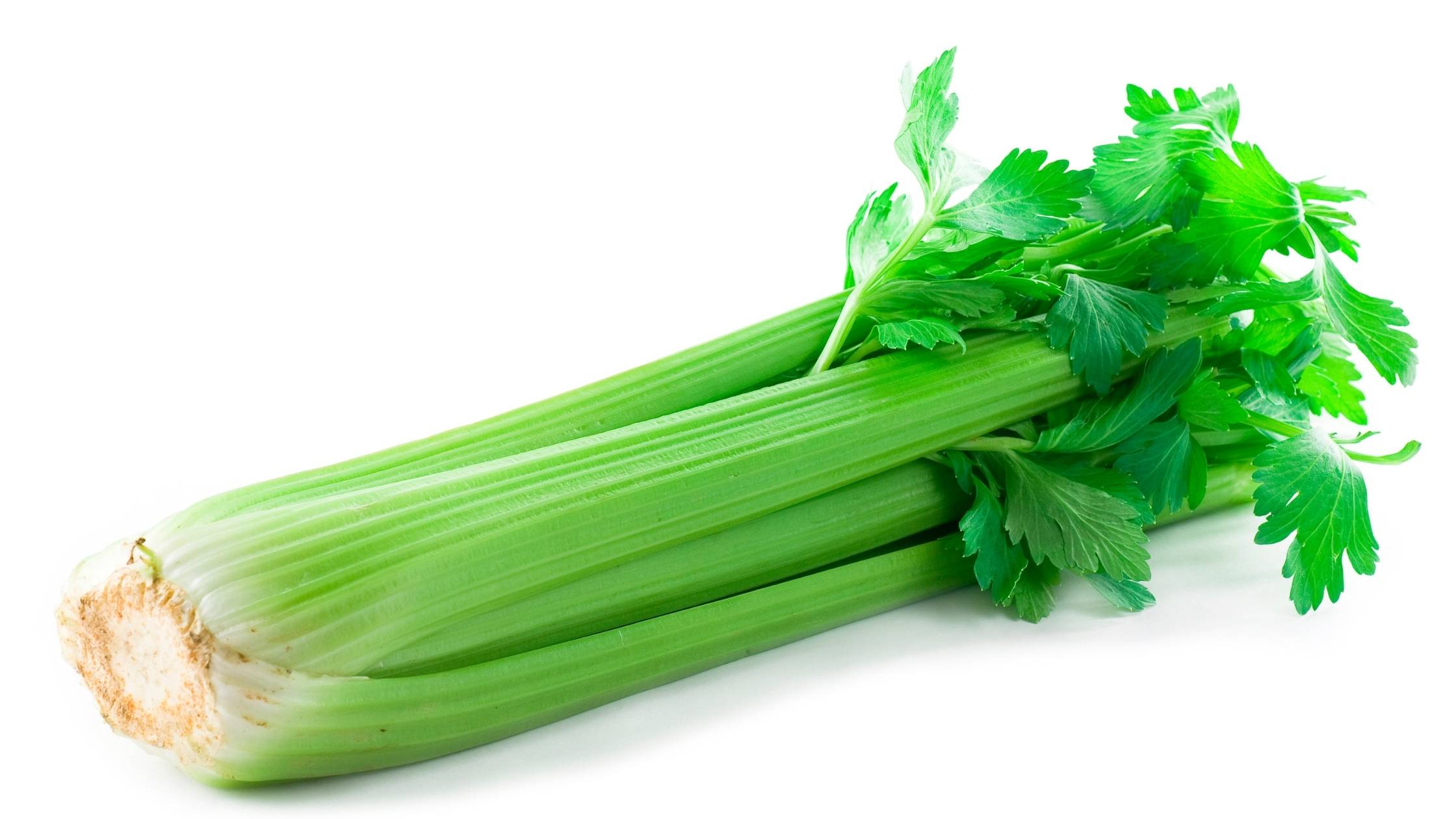It’s easy to think that horses eat anything in sight—just look at how big they are!
But people often get surprised to know just how picky these animals are. It’s quite common to see pastures with grass patches munched to the ground, while other patches are completely untouched.
Although they’re picky with the food they eat, it can also be quite dangerous just letting them decide what they eat. One common food owners should be cautious of is celery. Can horses eat celery? Let’s find out!
Can Horses Eat Celery?
Of course! Horses can eat celery, but it’s necessary to serve it in bite-sized pieces as celery can easily become a choking hazard even for these strong animals. Moreover, the amount of celery served each time should also be noted as overfeeding them with celery may cause stomach issues—among others.

Why Can You Feed Horses Celery?
Well, to be honest, celery is a pretty great vegetable, even for humans. Often featured in diet plans and healthy meals, celery’s a common vegetable packed with phytonutrients, vitamins, and minerals.
The variety of nutrients found in celery makes it a top consideration when it comes to choosing which vegetable is great as a treat.
Celery’s a great source of Vitamin K which is essential in the life of horses. It’s responsible for blood clotting and helping wounds heal, making it a crucial vitamin for a horse’s diet.
Moreover, according to a study, a sufficient amount of Vitamin K in their diet helps with the bone health of horses. Want a healthy horse? Then don’t leave this vitamin out.
Another nutrient in celery is Vitamin A can also be found in celery. It’s the vitamin that owners should always make sure to incorporate in their mount’s meal plan.
Since the general lifestyle of horses is to keep on moving around, they need this vitamin for energy, bone formation and growth—not to mention, hoof maintenance.
And of course, Vitamin C. all animals need Vitamin C, especially horses. As an antioxidant, any horse will stay healthy for as long as they get sufficient Vitamin C. No need to worry about free radicals when celery’s just around.
These three vitamins should be enough to justify why celery is a great vegetable for horses. The only thing left to be considered is just how much celery can be fed to horses.
How to Feed Celery to Horses
Now, before diving into how much should be given to them during mealtime, let’s first answer whether these picky eaters eat celery. Do horses eat celery? Yes, they do, and they won’t even shy away from it which is why owners need to control portions.
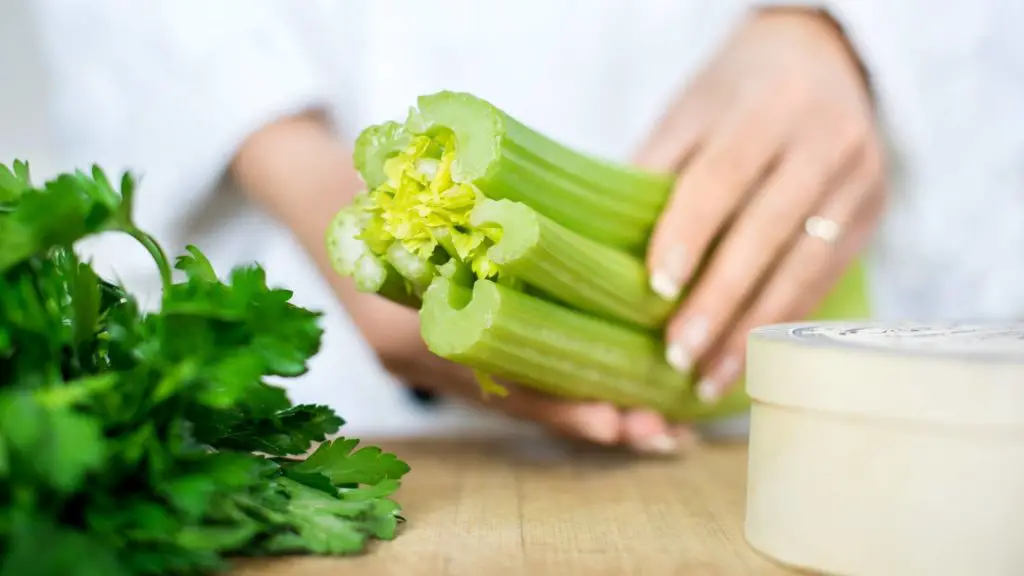
How much celery should be given to horses?
For humans, celery is perfectly safe and healthy. But for horses, having a bit too much can be harmful—and it’s not just about the choking hazard.
Ideally, a maximum of two pounds of celery can be given to horses each meal—with a maximum of three celery-packed meals per week. On top of that, these green veggies should be chopped into bite-sized pieces since horses don’t consciously chew all the time.
It should also be noted that if celery was already served, keep other Vitamin K-packed veggies on the low to avoid overfeeding them with this vitamin.
Can horses eat celery sticks?
Sure! Just be diligent to chop these celery sticks into bite-sized pieces to avoid offering horses choking hazards. These creatures don’t mind munching right away, so it’s best to not introduce a hazard.
Can horses eat celery leaves?
Absolutely. All parts of the celery are edible and safe for horses so don’t worry about it. Again, just be mindful of the size of the pieces being served to avoid unwanted choking.
Is celery bad for horses?
No, celery is not bad for horses in moderation. For as long as the two-pound limit is followed and it’s served no more than three times a week, the horse is safe. Any more than that and owners will see bloating and a less energetic horse than they expected.
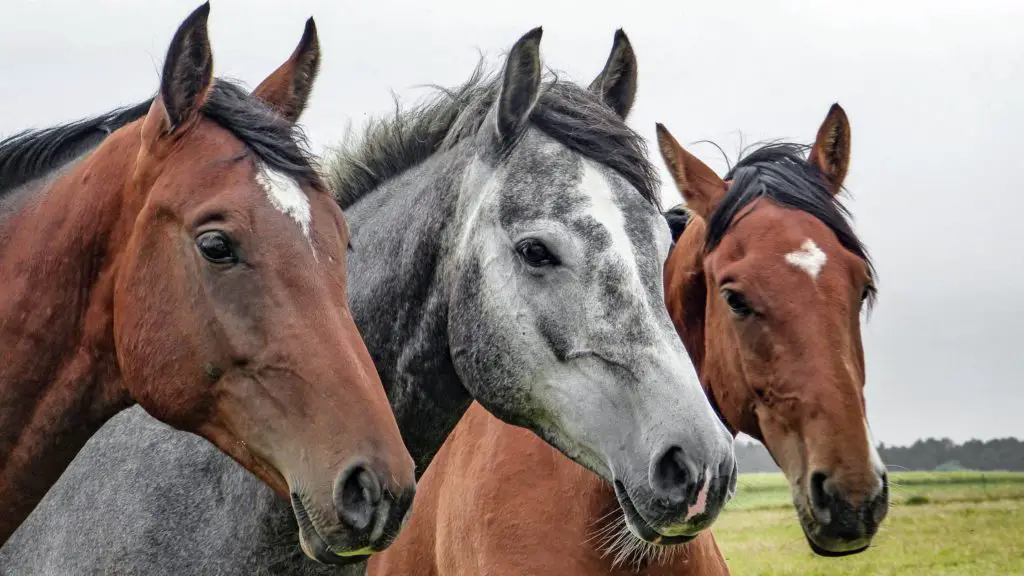
What Else Can Horses Eat?
The list of food that this herbivore can eat is actually pretty long. So, discard the thought that hay, grass, or grains are the only thing they want in their mouths.
Staple Hay and Grains
Some of the best foods to feed them on a daily basis are high-quality hay or good-quality grains are the best things to feed horses. Grassy stalks are essential to a horse’s diet which is why grain shouldn’t be enough.
Fruit and Vegetables
Fruits and vegetables are also great treats that can be served a few times a week. A word of caution though, be mindful of the fruits that you serve since they’re all packed with nutrients that can be harmful when in excess.
Some fruits worth mentioning are apples and pears without the core, plumbs, peaches and apricots without the stone, mangos, bananas and melon without the rind.
What Foods to Avoid Feeding Horses
No owner wants a sick horse because it’s a lot of work to nurse them to health. On top of that, these animals can’t speak for themselves so it’s totally up to caretakers to keep them away from anything harmful.
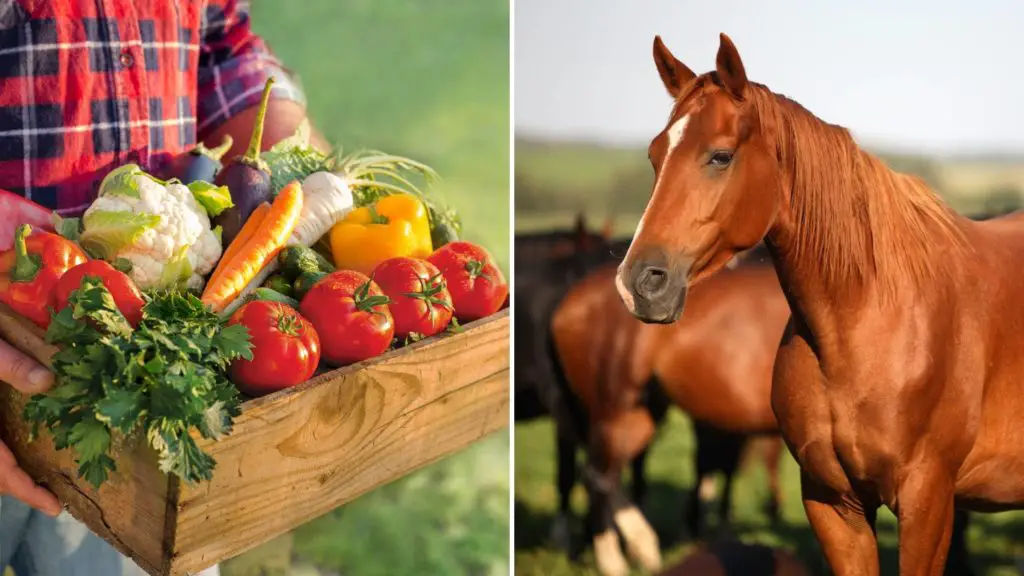
One of the best ways to keep them safe is to avoid serving them the following foods:
- Onions and Garlic – both contain allium which is toxic to plenty of animals, including horses.
- Tomatoes and Potatoes – both of these contain Solanaceae which is toxic for horses.
- Chocolate – this sweet treat contains theobromine which is fatal for horses, especially in large quantities.
- Bread – this is a processed food that won’t be digested properly by a horse’s stomach.
- Cruciferous veggies – cabbage, broccoli and cauliflower veggies are a big no when it comes to horse diets. These three cause gas that’s painful for horses.
Gastric Ulcers in Horses
Horses are also pretty prone to gastric ulcers, and it’s not a pretty sight. When horses are only fed with grain minus the roughage, it’s expected that they’re more susceptible to ulcers.
This is because grain hastens the emptying times of their stomach making the stomach walls more exposes to gastric juices. To avoid this problem, create a well-balanced diet and mix grains with hay and vegetables for healthier meals.
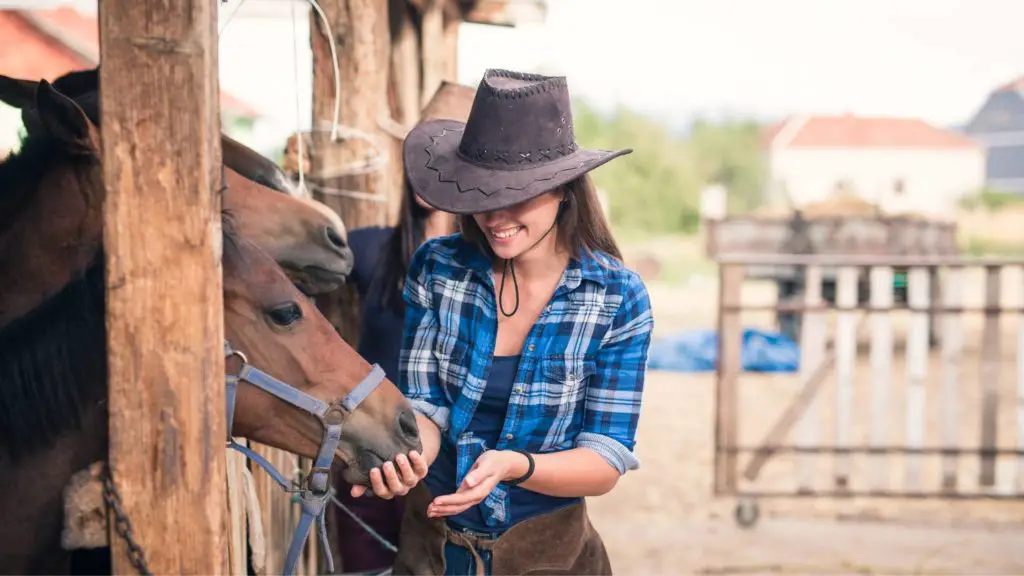
Frequently Asked Questions
Can horses eat pineapple?
As exotic as this fruit is, horses can definitely eat pineapples! This sweet fruit is an excellent treat, both on hot and cold days. Packed with Vitamin C, just make sure to remove the outer skin and the core, and chop it into small, bite-sized pieces.
Can horses eat peanut butter?
Yes, they can eat peanut butter, and who doesn’t like peanut butter anyway? What’s even more fun about peanut butter is that it can be put on top of bananas, tomatoes, or basically anything fed to horses. Unless the horse has a nut allergy, peanut butter’s perfectly safe.
Takeaway
So, can horses eat celery? Yes, they can—in moderation. Limit to two pounds of chopped celery each meal, with a maximum of two to three celery-based meals each week. Learn more about products good for horses here.
References:
- WebMD “Phytonutrients, https://www.webmd.com/diet/guide/phytonutrients-faq#1” Accessed May 14, 2021.
- WebMD “Health Benefits of Celery, https://www.webmd.com/diet/health-benefits-celery#1” Accessed May 14, 2021
- PetMD “When Horses Stress Out: Gastric Ulcers, Part 1, https://www.petmd.com/blogs/thedailyvet/aobrien/2013/nov/when-horses-stress-gastric-ulcers-part-one-31031” Accessed May 14, 2021
- Spana “What Do Horses Eat?, https://spana.org/blog/what-do-horses-eat” Accessed May 14, 2021

